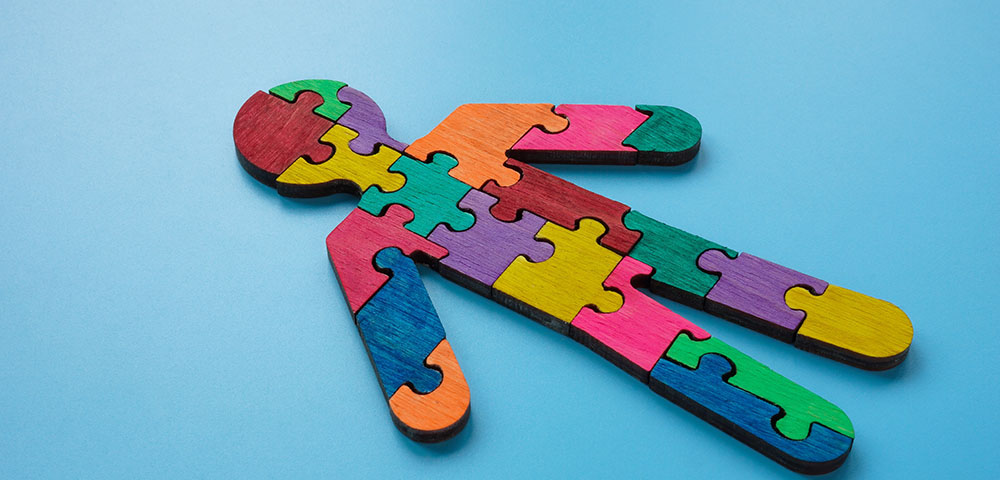
Neurodiversity
In the complex tapestry of human experience, the threads of neurodiversity bring their unique colours and textures, creating a rich and complex picture. I am dedicated to understanding and celebrating these diverse strands. I see each individual as a distinct and vibrant thread in this tapestry, and my role is to help unravel the challenges while highlighting the strengths inherent in this diversity.
What is neurodiversity?
Neurodiversity is a concept that recognises and respects the diverse range of human brains and minds. It acknowledges that neurological differences like Autism Spectrum Disorder, Attention-Deficit/Hyperactivity Disorder, Dyslexia, and learning disorders are natural variations of the human genome rather than deficits.
This perspective shifts the focus from trying to ‘cure’ these neurological differences to understanding and supporting individuals to live fulfilling lives.
What are some common neurodiverse conditions?
Autism Spectrum Disorder (ASD)
ASD is a neurodevelopmental disorder that affects social communication and behaviour. Those with Autism may have difficulty with social interaction, exhibit repetitive behaviours, and have a narrow range of interests.
In my approach to supporting individuals with ASD, I focus on enhancing communication skills, social interaction, and managing sensory activities.
Attention-Deficit/Hyperactivity Disorder (ADHD)
ADHD is characterised by patterns of inattention, impulsivity, and hyperactivity that are more severe and frequent than typically observed in individuals at a comparable level of development. My therapeutic approach for ADHD involves helping you develop organisational skills, focus strategies, and ways to manage impulsive behaviour. I also work closely with family members to create supportive environments.
Contrary to popular belief, ADHD is not limited to childhood; many individuals continue to grapple with its challenges well into adulthood. In adults, symptoms may manifest as difficulties in maintaining focus, organising tasks, and managing time effectively. Hyperactivity may present as inner restlessness or a constant need for stimulation, while impulsivity can lead to hasty decision-making.
Adult ADHD often poses significant challenges in both professional and personal realms, impacting daily functioning and overall quality of life. Diagnosis and treatment involve a comprehensive assessment, including a thorough evaluation of symptoms and their impact on various aspects of life. Management strategies may include behavioural therapy, counselling, and, in some cases, medication to address specific symptoms and enhance daily functioning. With proper understanding and support, individuals with adult ADHD can navigate their challenges, optimise their strengths, and lead fulfilling, successful lives.
Dyslexia & Learning Disorders
Dyslexia is a specific learning disorder characterised by difficulties in reading, often stemming from challenges in recognising speech sounds and understanding how they correspond to letters and words. Individuals with dyslexia may struggle with accurate and fluent reading, leading to difficulties in comprehension and academic performance in areas heavily reliant on reading skills.
Apart from dyslexia, there are various other learning disorders that can impact an individual's ability to progress in specific academic subjects. For example, learning disorders related to mathematics (such as dyscalculia) can result in challenges with understanding and manipulating numerical concepts. Similarly, learning disorders affecting language skills may hinder proficiency in languages, including both written and spoken aspects.
My therapy focuses on building coping strategies, enhancing learning methods, and boosting self-esteem, which can often be affected by the challenges these disorders present.
How do neurodivergent therapy sessions work?
In our therapy sessions, you will find a safe, respectful, and empathetic space where we will work collaboratively to understand your unique experiences and challenges. Our sessions may involve:
- We will identify and build upon your strengths while developing strategies to manage the challenges associated with your neurodivergent nervous system.
- I provide support for managing emotions and feelings that may arise from the challenges of being neurodiverse, such as frustration, anxiety, or low self-esteem.
- Where appropriate, I involve family members in therapy sessions to enhance understanding and create supportive home environments.

